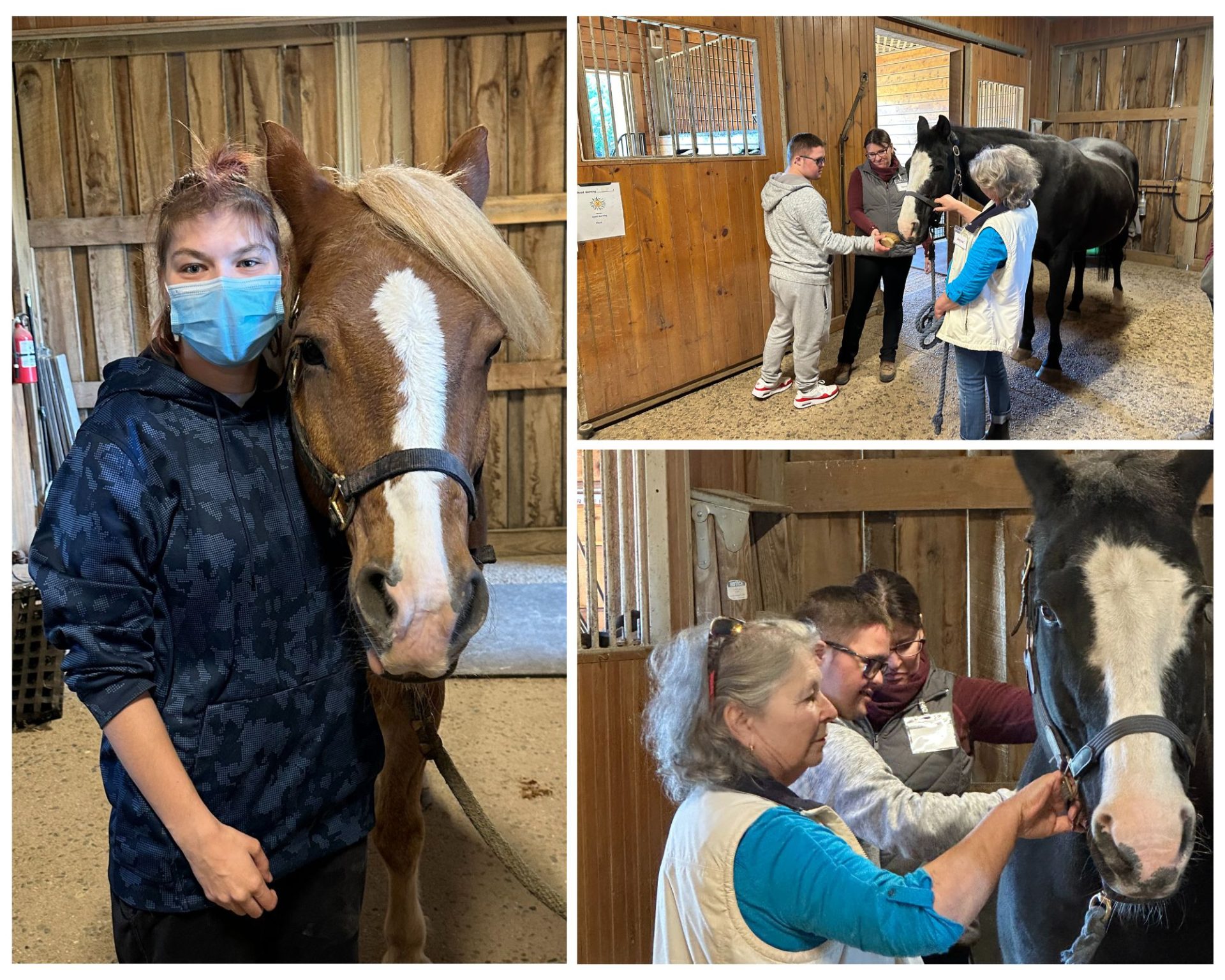
Unbridled Healing: The Transformative Benefits of Horses for People with Disabilities
Therapeutic horsemanship is a form of experiential learning that partners with horses to help promote emotional growth in people with disabilities. The remarkable connection between humans and horses has proven to be a catalyst for physical, emotional, and psychological healing and wellbeing. This past summer, Richcroft collaborated with the Rose of Sharon Equestrian School (ROSES) in Glen Arm, Maryland to bring this remarkable opportunity to the lives of those we serve.
Joan Marie Twining, Founder, Executive Director, and Vision Keeper of Rose of Sharon Equestrian School, tells us that interacting with horses in a variety of ways can be beneficial for people with a wide range of disabilities. At ROSES, they serve people with developmental disabilities such as autism, cerebral palsy, Down syndrome and other developmental disabilities, as well as older adults with dementia, brain injury, and individuals dealing with trauma, those suffering from anxiety and depression, and a multitude of other conditions.
Therapeutic horsemanship has many benefits. It provides a safe and supportive environment where individuals with disabilities can connect with horses, instructors, and volunteers. The bond formed with the horse can boost self-esteem, confidence, and a sense of accomplishment. Interacting with these gentle giants often brings a sense of joy and emotional well-being, naturally reducing stress and anxiety.
Equine assisted services are highly adaptable and can be tailored to the specific needs and abilities of an individual or group. ROSES has highly trained instructors and therapists who create personalized programs, ensuring that time spent at the stable meets each individual’s needs, and helps them progress through specific objectives despite physical impairments or emotional and behavioral challenges.
Michelle, Chris’s Community Support Specialist, tells us that when Chris first started participating in the community-based program at ROSES he was reluctant to even enter the barn. Now, she says he pets the horses, feeds them, grooms and cares for them, and looks forward to the day the group attends the School each week. “I’ve seen Chris grow so much in the short time we’ve been coming to Rose of Sharon,” says Michelle with a smile. “I am so proud of him and it’s really great to see!”
Working with horses, whether on the ground or in the saddle, fosters a sense of independence and self-reliance. Learning to control and communicate with a powerful and sensitive animal builds a sense of responsibility and accomplishment. This newfound confidence often extends to other aspects of the individual’s life, leading to improved independence in daily activities.
One of the most significant advantages of adaptive riding is the physical benefits it offers to those with mobility impairments. The motion of the horse’s gait closely mimics the natural walking motion of humans. This rhythmic movement helps improve balance, coordination, and muscle strength in individuals with disabilities, including those with cerebral palsy, multiple sclerosis, and spinal cord injuries. Riding a horse also engages the core muscles, which can be particularly beneficial for individuals with mobility issues.
Equine facilitated services offer a holistic approach to healing, addressing the physical, emotional, and psychological aspects of a person’s well-being. This comprehensive approach can help individuals with disabilities lead more fulfilling lives and we are immensely proud to collaborate with Rose of Sharon Equestrian School to offer this unique and transformative experience to those we serve here at Richcroft!
